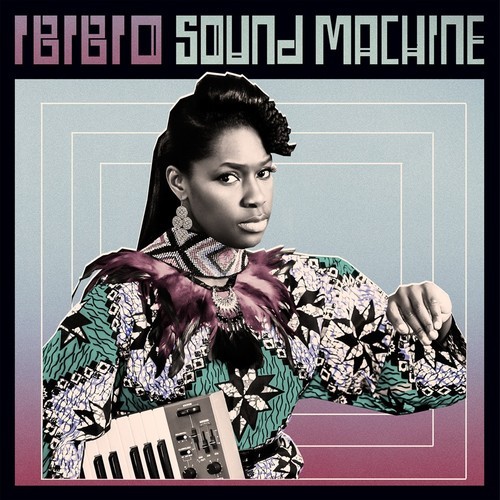Ibibio Sound Machine’s debut album sounds like the best parts of about half a dozen different genres from the '70s and '80s, all combined with an up-to-date electronic production approach, and the warm voice of the seriously stylin’ Eno Williams. (Did you check that album cover?)
This mixture makes a certain sense, as the London-based group includes band members with roots in Nigeria, France, Ghana, and Brazil. Supplying the West African highlife/Afro-funk side of the group’s sound is legendary guitarist Alfred “Kari” Banneman, who played in the renowned '70s Afro-rock band Osibisa and the more recent British Afro-funk group KonKoma. The group's name comes from Ibibio, the southeastern Nigerian language that Eno Williams sings in, basing her songwriting on folk tales that she learned from her family.
The record starts off with a simple, devotional-sounding arrangement of Eno’s lilting, overdubbed vocals (“Voice of the Bird (Uyio Inuen)”) and ends with “Ibibio Spiritual,” whose a cappella melody recalls that of “Amazing Grace.” In between, the album's first half maintains an electric dance party atmosphere, before drifting into a hazy but still captivating finish.
On “I’m Running (Nya Fehe),” telephone dial-style synths blend with the punch of saxophones, a swirling guitar line, and wavering singing for a rich sound that is both heartfelt and straight-up fun. “The Talking Fish (Asem Usem Iyak)” begins with Bootsy-style bass playing before breaking into a rhythmic freakout that sounds as if it was drawn from the brief period when disco and hip-hop overlapped to form electro. The album's first single, “Let’s Dance (Yak Inek Unek)” has a new wave flavor and a pulsating beat appropriate for the song’s title. Listen away below:
Further along, “Uwa The Peacock (Eki Ko Inuen Uwa)” showcases Banneman’s highlife playing, with an arrangement reminiscent of the ambient-dub-house of The Orb/Lee “Scratch” Perry records. Finally, the slow, trancey "Got to Get Out" leads into the closing “Spiritual."
The variety of musical elements that Ibibio Sound Machine brings together, the fact that it all works, and the sheer joy with which it is done is highly impressive, especially for a debut album. Building off a start like this, we can't wait to see where the band goes next. And without a doubt, a new generation of electro/disco/funk/highlife/Nigerian folklore is in good hands.
Want to hear more about Ibibio? Check out our interview with front-women Eno Williams.









